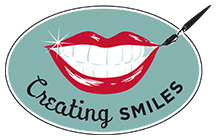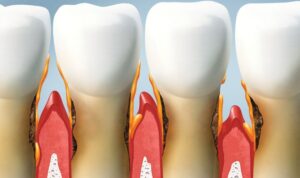Dental emergencies can happen at any time, resulting in discomfort and anxiety. A prepared strategy and knowledge of what to do in the event of an unexpected toothache, fractured tooth, or knocked-out tooth might be crucial. In this post, we’ll examine emergency dentistry, giving you the knowledge you need to tackle dental emergencies confidently.
Introduction
Imagine having a sudden mishap that chips your teeth or waking up in the middle of the night with a searing toothache. These circumstances can be extremely stressful in addition to being painful. Everyone has to know how to handle dental emergencies, and getting in touch with an emergency dentist may make all the difference in the world.
Common Dental Emergencies
- Toothaches and their causes: Several conditions, including sinus problems, cavities, and infections, can bring on toothaches. Treatment that works requires an understanding of the underlying source of the pain.
- Broken or chipped teeth: When accidents occur, chipped or broken teeth are frequently the result. It’s imperative to act quickly to stop more harm and relieve discomfort.
- Knocked-out teeth: An extracted tooth has to be taken care of right away. The likelihood of preserving the tooth can be greatly increased by being aware of the right actions.
- Lost fillings or crowns: Losing a filling or crown exposes the tooth to more harm; however, it is not usually painful. Short-term fixes might be helpful until expert assistance is sought.
- Abscessed gums: A gum abscess can cause excruciating pain and swelling. Identifying the symptoms and getting dental treatment as soon as possible is critical.
The Role of an Emergency Dentist
Emergency dentists are essential in delivering prompt, specialist care in dental emergencies. With the right equipment and expertise, they can handle problems quickly and provide solutions beyond routine dental visits.
- Swift response to emergencies: Emergency dentists are ready to act immediately because they recognize the severity of the issue. The outcome of the dental emergency may significantly change due to this swift intervention.
- Specialized equipment and training: Emergency response frequently calls for certain tools and methods. Because they are skilled in these treatments, emergency dentists ensure patients get the finest care available in times of need.
- Importance of early intervention: In cases of dental emergency, prompt action is essential. Getting assistance to avoid further issues and even lasting harm would be better. Having a dentist on call for emergencies guarantees that issues are resolved quickly.
Finding an Emergency Dentist
- Researching local emergency dental services: Knowing where to look for emergency dental care in your community is critical. Please do your homework on neighborhood doctors and take notice of their emergency services.
- Reading reviews and testimonials: Experiences with patients can yield insightful information. Examine evaluations and testimonies to determine the standard of service provided by emergency dentists in your area.
- Checking emergency dental hours: Emergencies with teeth can occur at any time. Ensure the emergency dentist you select offers accommodating hours, such as nights and weekends, to deal with unanticipated circumstances.
Steps to Take During a Dental Emergency
- Handling toothaches at home: You may take certain actions at home to reduce toothache pain while you wait for expert assistance, such as gargling warm water in your mouth and using over-the-counter painkillers.
- Protecting a knocked-out tooth: Handle a knocked-out tooth cautiously, taking care not to damage the root. While you seek quick dental treatment, gently rinse it and try to re-insert it into the socket, holding it in place.
- Temporary solutions for broken teeth: Cover the sharp edges with dental wax or temporary cement to protect the tongue and cheeks from additional harm in the event of a broken tooth. Seek expert assistance as soon as you can.
Preparing for Future Emergencies
- Building a dental emergency kit: It is helpful to have a dental emergency kit at home. Add supplies like gauze, tooth wax, temporary cement, and your emergency dentist’s contact information.
- Knowing when to seek immediate help: It’s crucial to know what dental emergencies entail. Emergency care should be provided for severe pain, heavy bleeding, or injuries to the mouth and face.
- Regular dental check-ups for prevention: The finest dental treatment is preventive. Regular dentist visits can help detect any problems early and lower the risk of dental emergencies.
Read More: Dental Health Tips for Different Age Groups
The Benefits of Quick Action
- Reducing pain and discomfort: Prompt intervention in an emergency dental situation can greatly lessen pain and discomfort, giving the patient much-needed respite.
- Preventing further damage: Treating dental problems as soon as possible may maintain oral health, and additional harm to teeth and surrounding tissues can be avoided.
- Increasing chances of successful treatment: Early intervention reduces the impact of the dental emergency on long-term oral health by increasing the likelihood of successful treatment and recovery.
Personal Stories of Dental Emergencies
Personal accounts from people who have dealt with dental emergencies might provide insightful information. Readers can have a better understanding of the significance of remaining composed and acting decisively in times of crisis by learning from personal experiences.
Insurance Coverage for Dental Emergencies
- Understanding dental insurance policies: Learn the terms and conditions of your dental insurance. Recognize the coverage for urgent dental treatment, including any restrictions or limits.
- Coverage for emergency dental care: Emergency dental care is often covered by dental insurance coverage. It’s crucial to know about any particular operations or therapies that could not be reimbursed.
- Tips for maximizing insurance benefits: Knowing how to make the most of your insurance coverage might be financially beneficial in an emergency dental situation. Maintain receipts, record the emergency, and file claims immediately.
Conclusion
In conclusion, maintaining excellent oral health requires being ready for dental emergencies. Finding a trustworthy emergency dentist, acting quickly, and being prepared for typical problems may all make a big difference in how a dental emergencies turns out. People may confidently address dental emergencies by being proactive and knowledgeable.






